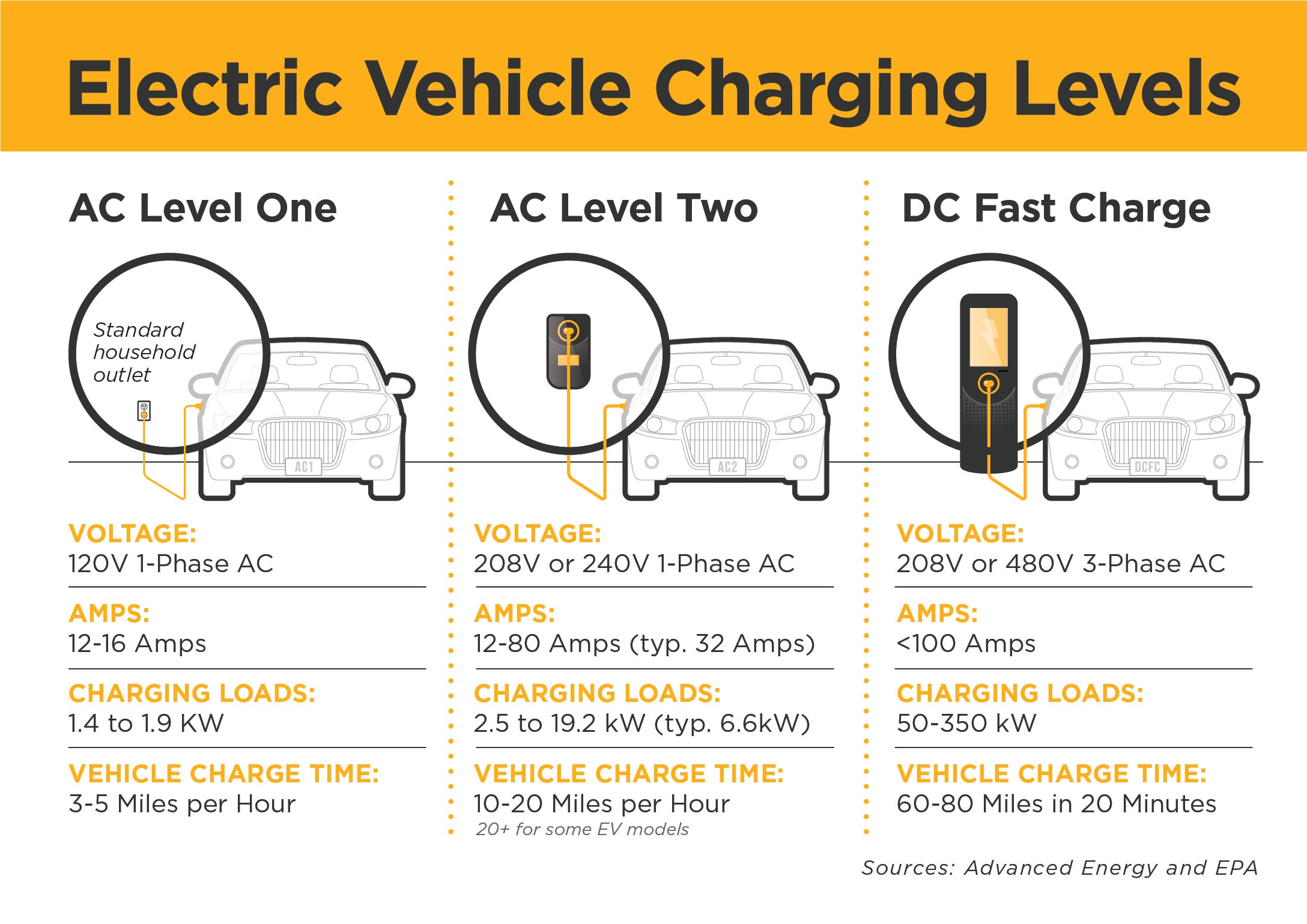
You’ve likely heard or read that most automakers are transitioning many or all their new vehicles to electric-only models over the next 10 years.
Regardless of the type of car you drive today, the electrification of the transportation sector is underway.
EV Info

Electric Vehicle FAQ: Is an electric vehicle right for you?
Most of today's electric vehicles have a driving range-per-charge between 50 to 330 miles. If your daily commute is under 250 miles per day, there is likely an affordable EV model that will fit your needs.
BUYER TIP: When you're looking at EVs, be sure to check the "range-per-charge" for the vehicle. This is the number of miles the car can typically drive between full charges. For example, if the range per charge for an EV is 100 miles and your daily commute is 30 miles, you should be able to go about 3 days between charges (30mi + 30mi + 30mi = 90mi). EV range varies significantly between models.
Long road trips can present challenges for today's electric vehicles. Public charging infrastructure and battery technology is continually improving, but planning is still required for long trips. There are many EV models available with a range-per-charge of 150 to 250 miles. There are some high-end EVs that can get over 330 miles on a single charge.
EV range is steadily increasing every year, and there is probably a Plug-in Hybrid Electric Vehicle (PHEV) that would be a good fit for you. While PHEVs still use gasoline and require oil changes, many models have an all-electric range that will meet your daily commuting mileage needs.
If you live in a household with more than one car, an EV likely represents a big opportunity for your family to save a lot of money, while improving the quality of our environment. Use an EV for commuting and use the other vehicle for long distance drives... it's just that easy!
Plugin electric vehicles require charging. Charging can be done with a standard 120V outlet or you can have a 240V charger installed in your garage or driveway. Known as "Level 2 EVSE equipment," 240V charging reduces charging time substantially, is more energy efficient and some EVSE models allow you to schedule charging times, which may allow you to take advantage of special electric rates.
EVs cost less to drive and pollute less, period. An EV uses electricity that is typically generated from sources that are cleaner than burning gasoline or diesel in a vehicle. EVs produce no tailpipe emissions. Even when the power is generated using fossil fuels, electric vehicles usually show significant reductions in overall global carbon emissions over gasoline vehicles due to the highly carbon-intensive process of mining, pumping, refining and transporting gasoline.
NOTE: Electric cars are not completely environmentally friendly as there can be significant issues to consider related to energy and material use in the manufacturing process. This may include energy-intensive manufacturing processes or the mining and refinement of chemicals and materials.
1 U.S. Department of Transportation, Bureau of Transportation Statistics, the Omnibus Household Survey.
2 U.S. Department of Energy - Energy Efficiency and Renewable Energy Alternative Fuels Data Center, Maintenance and Safety of Hybrid and Plug-In Electric Vehicles.
3 Shah, Saurin D. (2009), Plug-In Electric Vehicles: What Role for Washington? (1st edition). The Brookings Institution. pp. 29, 37 and 43.
4 U.S. Department of Energy - Office of Energy Efficiency and Renewable Energy, Saving on Fuel and Vehicle Costs.
Disclaimer:
These facts are provided by ChooseEV. Some numbers and statistics in this content may be estimates and subject to interpretation. Many factors must be taken into account to determine the total cost of ownership of EV and traditional gas-powered vehicles. This information is provided to give consumers a general understanding of EV concepts and opportunities. Customers should review information from EV manufacturers before making a purchase decision

